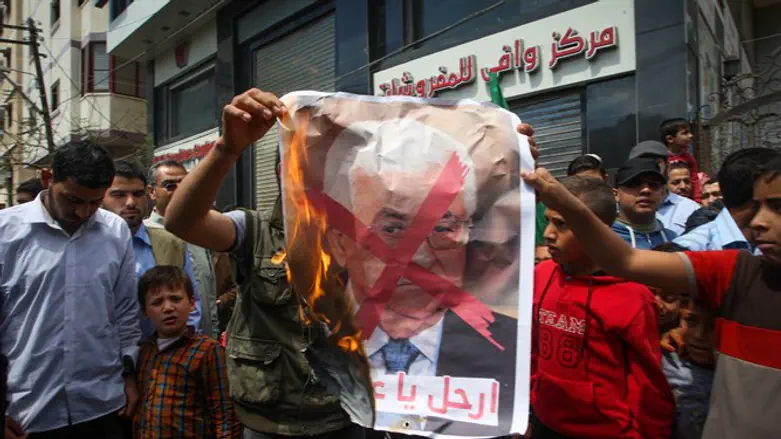
Dr. Ido Zelkovitz, an expert on the relations between Fatah and Hamas from the University of Haifa and the Yezreel Valley College, spoke on Sunday about the apparent collapse of the Hamas-Fatah reconciliation agreement.
Dr. Zelkovitz told Arutz Sheva that it was too early to tell, in his opinion, whether the agreement has indeed collapsed.
"We are still at the beginning of a process, and I do not know whether this process of reconciliation can be declared dead," he said, noting that both sides lack the ability to reach a compromise.
"There are still different variables that can lead to a certain ceasefire or temporary compromise, but what each side really thinks about the other has been exposed once again.”
"There are a number of disagreements that cannot be resolved,” noted Dr. Zelkovitz. “The main dispute is over the Palestinian weapons. Fatah wants to see one skilled military force for internal policing, while Hamas holds the weapon of terror, or the weapon of resistance as it calls it, and does not want anyone to disarm it. Its main asset that helps it enforce its rule in the Gaza Strip is its military wing, and every time this issue arises, Hamas makes clear it will not hand its arms to any other party, and when a deadlock starts, the mutual accusations begin."
As for Egypt, which brokered the truce agreement, Dr. Zelkovitz said, "Even the Egyptian power is limited and they are not magicians. This reconciliation was imposed on the Palestinian Authority and on Abbas, who could not shake off the demand that the PA take control of the Gaza Strip. A refusal would have been considered a turning point for the Palestinians in the Gaza Strip. The administration of civilian affairs in the Gaza Strip is a great headache for Abbas.”
Another obstacle standing in the way of reconciliation, he noted, is Hamas’s demand to be integrated into the Palestine Liberation Organization (PLO), the body that is considered an umbrella and which includes the various Palestinian Arab organizations.
The PA fears that "giving Hamas a foothold in the PLO will enable it to take control of this body from the inside, and Hamas does not hide that this is its intention,” said Dr. Zelkovitz.
"Abbas and the PA are not willing to give them this. They remember Hamas's statements against the PLO and the diplomatic process with Israel, so this is a very serious dispute that is very difficult to solve,” he continued, adding that the believes the Egyptians will not stop exerting pressure on Hamas and Fatah in light of their interests in reaching a compromise.
"I assume that the Egyptians will continue to pressure both sides to reach a compromise, so despite the exchange of verbal blows, we are not at the end of the process. Even though there is no love there, the dialogue will continue. Egypt wants quiet and stability in Gaza and to prevent a humanitarian crisis there. It also wants to sever the ties between Hamas and militant Salafist organizations in the Sinai Peninsula, ties that feed Hamas's military wing. I do not see the Egyptians giving up in light of their own interests in this process.”